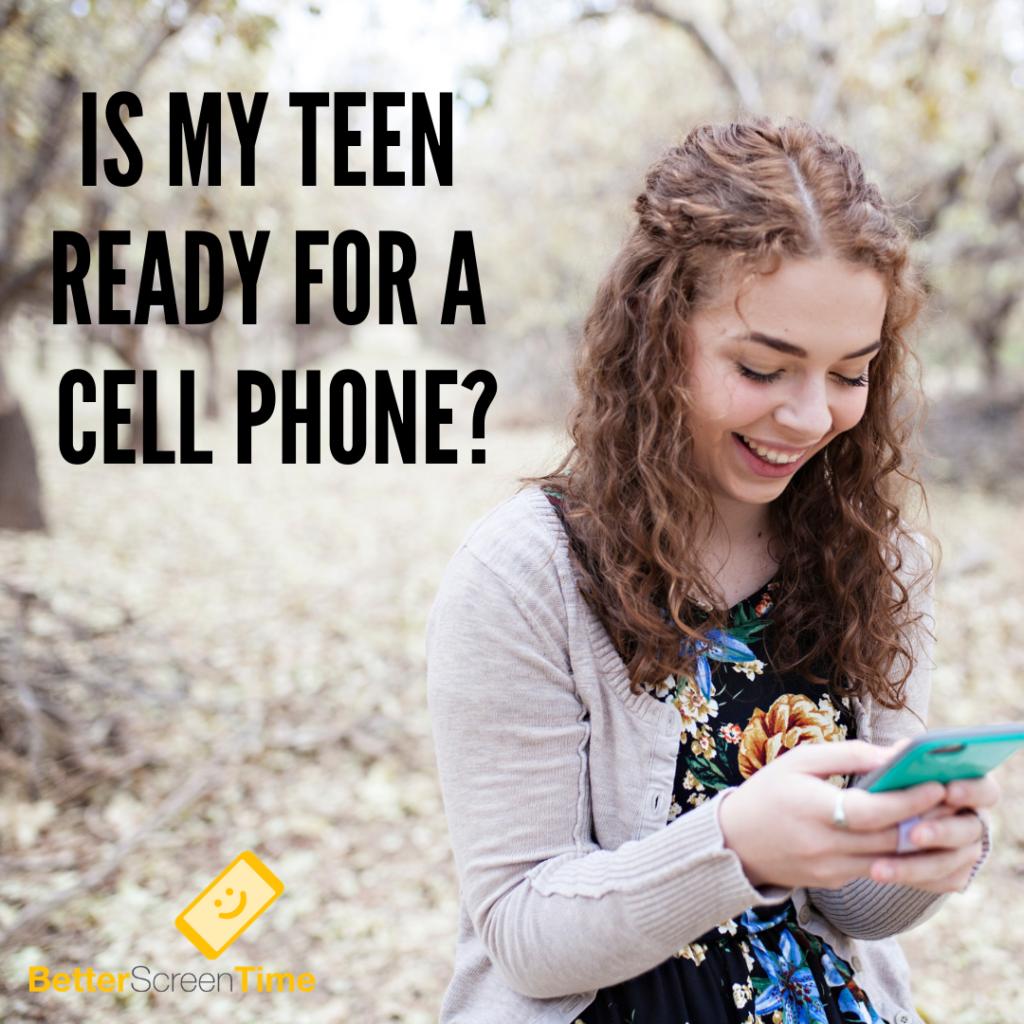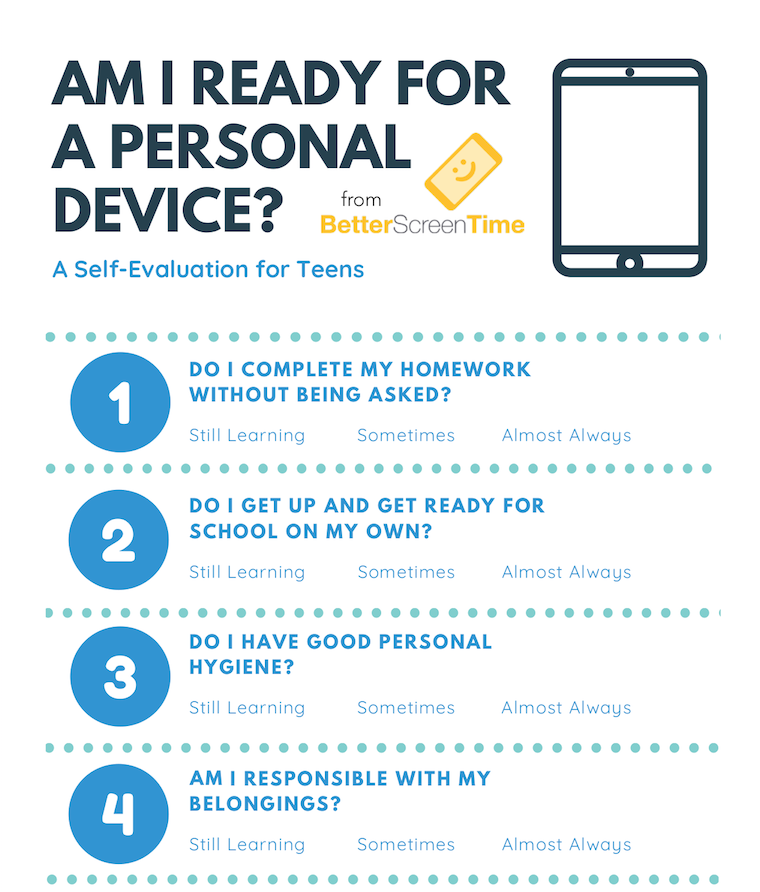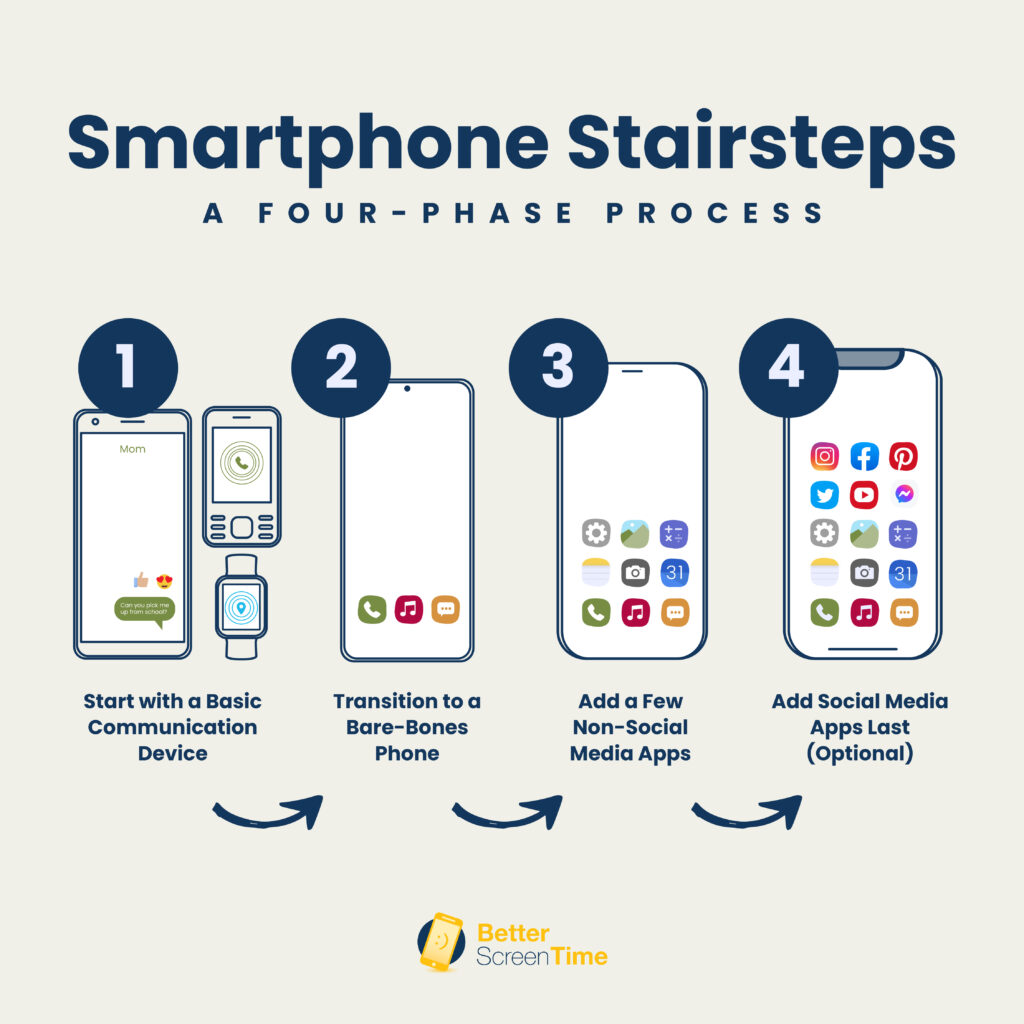
*This article was originally published on February 19, 2019. We have updated it with additional information and links!
Is my teen ready for a cell phone? This is the million-dollar question for parents today! There is no single right answer because every family and every teen is different.
We are parents who are still learning, but we’d like to share a few strategies that have helped us make this important decision.
We’ve spent a considerable amount of time studying the latest research, interviewing intentional parents, and testing strategies in our own home to discover some helpful solutions. We hope they’ll help you to find the answers you need for your own family.
Teens’ Brains Are Still Developing
The bottom line is that our childrens’ and teens’ brains are still developing. Even as adults we aren’t always smart about how we use our phones, and our brains are fully developed. So, imagine why many teens struggle to handle all of that power in their pocket? Their prefrontal cortex, the part of the brain responsible for decision-making, is still under construction.

Research has proven over the past few years that behavioral addiction is real and some people can become addicted to screens. Interactive screens tap into the dopamine levels in our brain and may leave us wanting more. This can be especially challenging for under-developed brains.
This is why we have to take this decision seriously. We love our kids. Let’s give this decision our best effort.
Here’s our imperfect, but sound advice…
- Delay as long as possible. Hold out as long as you can. If you’re child or teen isn’t asking about a phone, just wait! If they are asking, take time to prepare and don’t feel pressured to get your teen a cell phone until you feel you both feel ready. We want our children and teens to interact with the real world as much as possible so their brains can fully develop and so they can be prepared for real life.
- Listen to your gut. This advice came from my friend Maren. Don’t ignore those feelings inside that are telling you that you or your teen aren’t quite ready for the responsibility of managing a cell phone. You want to feel prepared, not scared.
- Talk to intentional parents. When I started researching this topic, I found that talking to parents face-to-face or on the phone was the best way to find the answers I needed. Sure, you can write a FaceBook post or ask your friends on Instagram and you’ll get some great ideas, but I’ve found that parents of teenagers need to be more careful about the personal information they share. We’re no longer talking about toilet-training and picky eaters. The conversations can get heavy and other parents are more likely to share what is not working and why in a one-on-one conversation. You will benefit from their collective experiences and wisdom that you can only gather from a real conversation.
- Do your homework. Remember, once you hand a phone over, you will have to manage it. Are you ready for that responsibility? What do you know about behavioral addiction? I recommend reading at least one book about screen time addiction. (Check out our book list here.) Not everyone will become addicted, but it’s good to be aware so you can do your best to prevent tech addiction in your own family.
- Create a family technology plan with your kids. Our kids need ownership in our family’s rules and the consequences. They also need to understand why technology can potentially be dangerous. We created a family technology plan with our kids and then over the course of several months we held a family strategy session called a Family Tech Think Tank to discuss everything from online safety to pornography. (You can check out our book, Creating a Tech-Healthy Family to get started!)
- Create a self-evaluation together. As part of our Family Tech Think Tank, I asked our kids, “What does it mean to be responsible? What does it mean to be emotionally-mature?” Our kids came up with all kinds of great answers. Your kids will too! Use these answers to build your own family self-evaluation so that when kids and teens start asking for a device you can turn to this list of questions to determine their own readiness. As parents of five children, we’ve realized that all of our children will be ready at different ages. This self-evaluation tool allows us to work with each child on an individual basis to decide when they are ready for their own cell phone.

If you’d like to use our self-evaluation as a starting point, you can download it right here!
- Use a family device or simple device as long as possible. Again, every child and situation is different; there is no magic age that determines cell-phone readiness. But based on the latest research and talking to intentional parents, we’ve determined that 14 years old is a smart minimum age for a restricted smartphone. If you can wait even longer—do it!
We signed the Wait Until 8th pledge and highly recommend their approach. There is strength in numbers! There are circumstances when parents might decide they want to give their child a cell phone prior to age 14. Perhaps they have joint-custody, the child is involved in activities outside of school, has a long walk home from school alone, or is part of a church or social group that relies on text messages for communication. In these situations, we recommend using a simple communication device such as a feature phone (flip phone), a Gabb phone, or a watch-type device that only allows communication with certain phone numbers.
The important thing here is: NO INTERNET SERVICE!
When we started this cell phone journey with our oldest, there were very few cell phone options, but as soon as we heard about Gabb Wireless, we purchased one of the first 100 phones. The Gabb Wireless phone is a smartphone with no app store, no Internet access, and for me, no worries! It has become an essential tool in helping our kids slowly gain access to more technology when they are ready.
You can use our code BST30 to get $30 off a Gabb Wireless phone once you determine your older child or teen is ready for that initial step! (Sorry international friends, it’s only available in the U.S. at this time.)
- Schedule a time for an individual conversation. Once you’ve determined your teen is ready for their own device, schedule a time on the calendar for yourself, your spouse, and teen to meet and review the family technology plan. Make sure your teen is clear on the expectations and consequences. We think a family technology plan, plus a parent/teen pledge is much more useful than a cell phone contract. You can read more about that here.
- Don’t give a cell phone as a gift. The cell phone is a tool that you are lending to your teen. If you give it as a gift, it becomes theirs. They will consider the device as their own and it will be seen as a toy or possession. We want them to see the cell phone as a tool they use for schoolwork, to communicate with you, and more. Check out this excellent explanation from our friend Ralphie Jacobs of Simply on Purpose about why we shouldn’t give a cell phone to our children as a gift. And if you have already given your teen a cell phone as a gift, it’s okay. We recommend sitting down with your teen and going over our quick guide questions and talking about how to use technology as a tool. Let him or her know that you now know better, and you consider the cell phone as a tool and privilege, not something we are all entitled to.
After You’ve Handed Over a Cell Phone…
- Take it step-by-step. We realized that it was smart to gradually ease into the responsibility of cell-phone ownership. We recommend a four-phase process, which you can mold and fit to work for your own family. Thankfully, device companies have recently made using a restricted smartphone much easier! The ScreenTime feature on iPhones and iPads, and Google Family Link on Android devices are both great starting points. These features, along with additional filters and monitoring apps, can help keep your teen’s smartphone use bounded. Just remember that teens are smart, and they often find workarounds, so nothing can replace the conversations we have with our teens about appropriate use.

- Continue to use the self-evaluation questions. Once you allow your teen to use a device, think of it as practice and training. Just because your teen now has the technological equivalent of a car and a driver’s license, doesn’t mean they will be incident-free. We need to continue to coach and guide them as they learn to navigate technology wisely. You can continue to engage in conversation, model positive use, and use the self-evaluation to help your teen prepare for the next phase of the four-phase process.
What If I’ve Already Given My Teen a Cell Phone and Now I Regret It?
If you’ve already given your teen a phone and it’s not working out, please know that you are not alone. You are a parent who is doing their best. We are encountering new territory as a society and we are learning as we go!
When we decided to go back to a feature phone (basic phone) from a smartphone with our middle-schooler we kept coming back to some favorite parenting advice: “I reserve the right to be wiser today than I was yesterday.”
It will be hard. Your child or teen won’t like it, but it is possible. Remember to just keep loving, trying, and work hard to spend quality time with that child. Then create a plan as a family so your child or teen knows that they will get to have that privilege when the time is right.
How do you decide when your teen is ready for a cell phone or a smartphone? What has worked well for you? We’d love to know!
